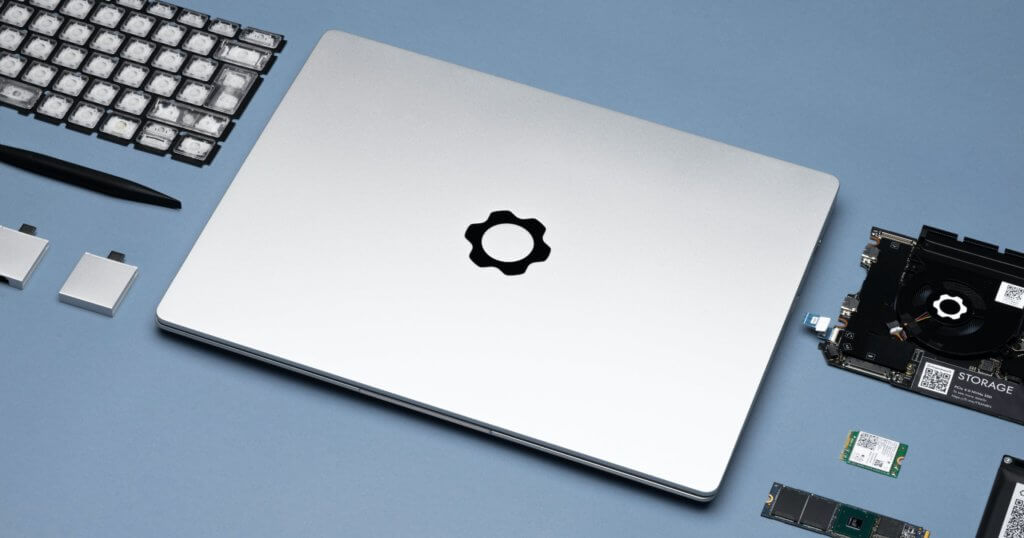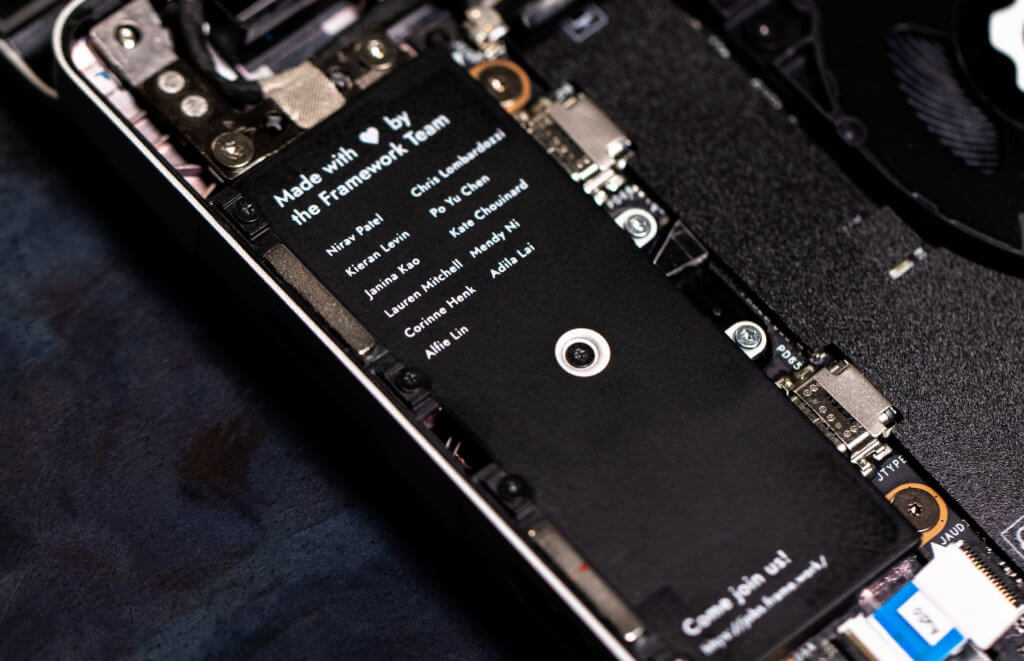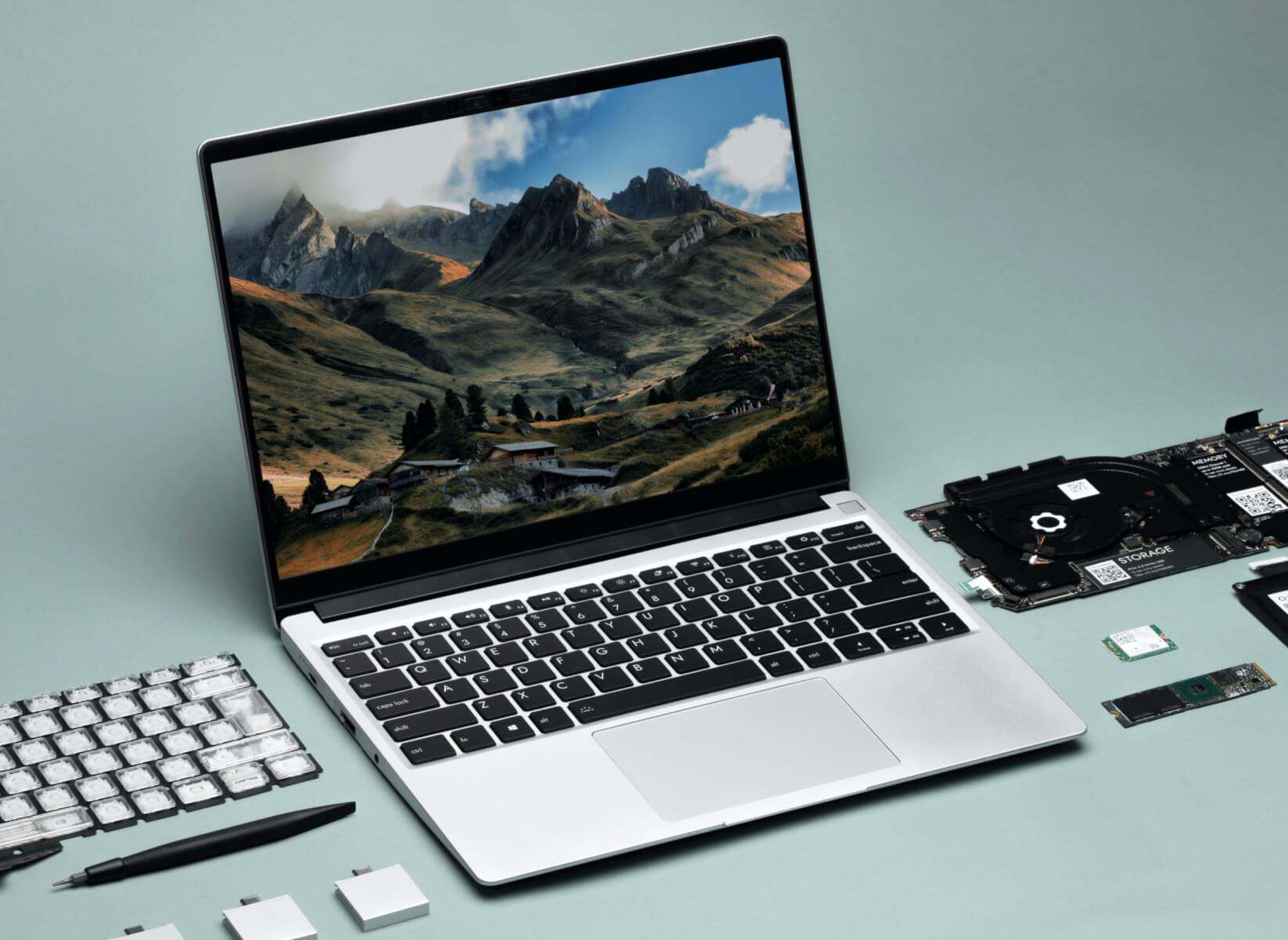Framework, a startup company from San Francisco, has announced just yesterday its first product, the Framework Laptop, which is a fully upgradeable 13.5-inch device.
Although the announcement did not give any hints about the laptop’s pricing, it did offer some information about its specifications. Described as a “thin, lightweight, high-performance 13.5” notebook that can be upgraded, customized, and repaired in ways that no other notebook can,” the laptop sports also an aluminum housing and weighs just 1.3kg.

It comes with a 13.5-inch, 2256×1504, 3:2, 400 nits display, a 1080p 60 webcam, a 55Wh battery, and a keyboard with 1.5 mm key travel.
The insides are powered by the Intel Core i5-1135G7, i7-1165G7, or i7-1185G7 Tiger Lake processors with Intel Xe graphics.
But what really stands out is the laptop’s upgradability. You can customize almost anything, from the storage, battery, memory, and ports, to the Wi-Fi, mainboard, screen, or keyboard.
For example, the Expansion Card system allows the ports on the side of the laptop to be switched between USB-A, USB-C, HDMI, DisplayPort, fast 250GB/1TB expansion cards, microSD, and many more.
“As a consumer electronics company, your business model effectively depends on churning out constant tons of hardware and pushing it into channels, and into the market, and into consumers’ hands, and then sort of dropping it and letting it exist out there,” Framework founder Nirav Patel told ‘The Verge’. “It encourages waste and inefficiency, and ultimately environmental damage.”
Taking that into account and adding to the customizable setup that can easily accommodate specific needs and make repairs much less challenging, the laptop’s concept was designed so that it would also reduce electronic waste and provide a longer lifecycle. The device is made of 50% post-consumer recycled (PCR) aluminum and an average of 30% PCR plastic and comes in a fully recyclable packaging made of no single-use plastics with carbon offset shipping.

However, even though the standard Framework models are pre-configured with Windows 10 Home or Pro, buyers can pick a second option, and instead choose to get the Framework Laptop DIY Edition, that will be ”available as a kit of modules that you can customize and assemble yourself, with the ability to choose Windows or install your preferred Linux distribution.” And the team even thought to include a screwdriver in the package so users “can upgrade over time.”
Framework isn’t the first company to try its luck at modular devices. Google’s now shelved modular smartphone project, called Project Ara, was an equally ambitious concept concentrating on interchangeable components that would allow a device to be upgraded over time with new capabilities eliminating the need to purchase an entirely new smartphone. that has been shelved. So far, Framework has settled on summer 2021 as the shipping date, with more details as well as pre-order information scheduled to be released in the next few weeks.
Follow TechTheLead on Google News to get the news first.





















